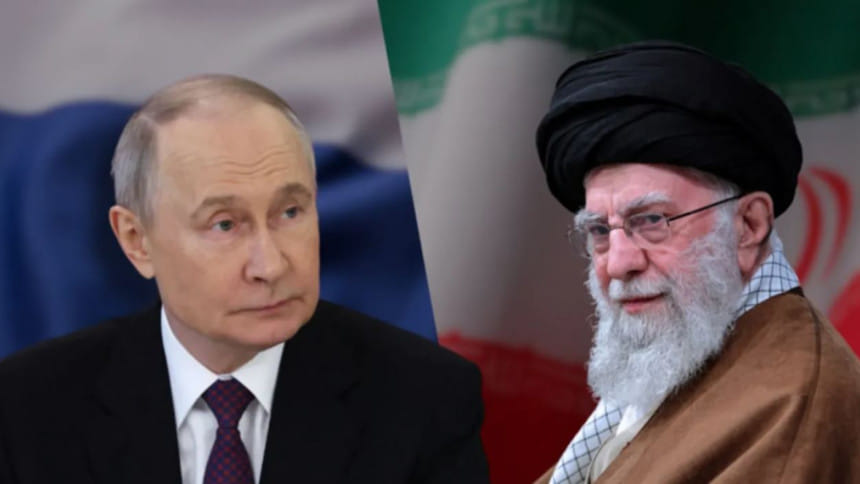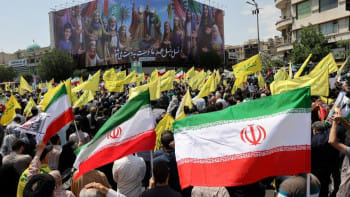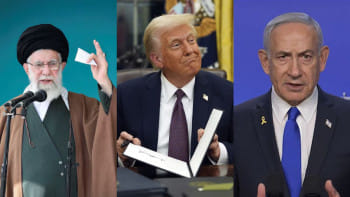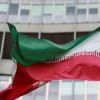Iran-Israel conflict: Russia isn’t just watching, it’s playing the long game

The Middle East has seen its share of flashpoints. But what unfolded on June 13—when Israeli forces carried out sweeping airstrikes against Iranian nuclear sites—marked something else entirely. It was not just an exchange of fire but a shift in the architecture of power in the region. Iran was hit hard. Israel doubled down. And through the dust, Russia didn't flinch. It didn't intervene either—at least not visibly. But that doesn't mean it was passive, far from it.
Moscow's moves these days aren't meant to draw headlines. They're designed for the long haul. And if there's a central thread running through the Kremlin's posture on the Iran-Israel standoff, it's this: the conflict may be regional, but the stakes aren't.
A treaty that didn't need to shout
Back in January, well before missiles flew, Russia and Iran signed a sweeping 20-year pact. Not just symbolic—not some dusty memorandum left unread in a drawer. This was a clear statement of alignment. Trade. Defense. Energy. Technology. Even cultural exchange. Almost everything was on the table.
Neither side needed to spell it out, but the subtext was loud enough: both countries, boxed in by Western sanctions, were done playing inside a system built without them. Putin called it a "breakthrough," though he kept the delivery calm. Tehran was equally deliberate. This wasn't about noise. It was about building something that could last, not just to weather pressure, but to bypass it altogether.
And it's working, at least economically. It's not headline-grabbing by global standards, but that misses the point. The shift is in the direction, not the scale. Two countries once on the defensive are now crafting their own rules.
Moscow's balancing act
If Russia's relationship with Iran is growing deeper, its approach to Israel remains layered. The Kremlin has worked with Tel Aviv for years—in Syria, in arms coordination, in quiet backchannels. That hasn't changed. What's changed is the tightrope.
After the strikes, Putin made two phone calls. To Iran, he offered condemnation. To Israel, he emphasised restraint. He wasn't exactly splitting the difference; it was more nuanced than that. Russia doesn't want a full-scale blowup between two of its most watched partners. Not now. Not with Ukraine still burning resources at home.
The calculus is pragmatic. Conflict in the Middle East distracts Washington and stretches NATO's bandwidth. But too much instability? That's bad for business—and for Russia's limited reach. So, the game is to keep the pot simmering, not boiling over.
The war tech pipeline
Since 2022, military ties between Russia and Iran have expanded. Missiles, drones, and artillery—the volume and sophistication have increased. Iran's Shahed drones, in particular, have become a staple in Russia's toolbox, enough so that Moscow now manufactures its modified versions.
But it's not just about equipment. The partnership is about shared design, production logistics, even maritime coordination. Joint naval drills are now a regular feature, not a novelty. These aren't exercises in solidarity—they're part of a strategy. One that challenges the traditional US-led security framework without necessarily confronting it head-on.
Side-stepping sanctions
Both countries know sanctions aren't going away. So instead of pleading for relief, they're creating workarounds. Direct bank ties. Local-currency trade deals. Integration into regional blocs. Earlier this year, Iran officially joined a free trade agreement with the Eurasian Economic Union, a move that doesn't just lower tariffs, but also signals which way the winds are blowing.
In this emerging order, the dollar matters less. So does Society for Worldwide Interbank Financial Telecommunication (SWIFT). What matters more are bilateral mechanisms that reduce friction and signal permanence, especially for other states considering similar paths.
It's not flawless. Black markets and barter systems come with risk and inefficiencies. But for countries looking to operate outside Washington's financial shadow, the alternative model—pioneered by Russia and Iran—is starting to take shape.
More than an alliance
This isn't just about two sanctioned states finding comfort in each other's company. It's about the kind of global order they want.
In theory, it's appealing to many, especially those frustrated with what they see as Western double standards. But ideals aside, this strategy is also a hedge. A way to insulate Moscow and Tehran from isolation, while positioning them as leaders of an alternative club.
Reality still bites
None of this means Russia is invincible in the region. The recent strikes showed that, clearly. Moscow couldn't stop them. Couldn't de-escalate them. And couldn't leverage the moment for gains. Its influence, while wide, has ceilings.
The Ukraine war is also draining more than just tanks and ammunition. It's limiting Russia's ability to invest elsewhere and complicating every foreign policy calculation.
What next?
The Russia-Iran partnership is likely to deepen. The tools are in place. The incentives align. And the shared sense of being kept at arm's length by the West remains a binding force.
But staying the course will require more than shared grievances. It will take results—economic, technological, and strategic—that justify the risk. Both countries know this. And both are betting that their alliance, however unconventional, can deliver something the Western order can't: room to manoeuvre on their own terms.
That's the bet. The stakes, though, aren't just theirs.
Md. Ibrahim Khalilullah is vice-president of Bangladesh Law Alliance. He can be reached at [email protected].
Views expressed in this article are the author's own.
Follow The Daily Star Opinion on Facebook for the latest opinions, commentaries and analyses by experts and professionals. To contribute your article or letter to The Daily Star Opinion, see our guidelines for submission.

 For all latest news, follow The Daily Star's Google News channel.
For all latest news, follow The Daily Star's Google News channel. 










Comments